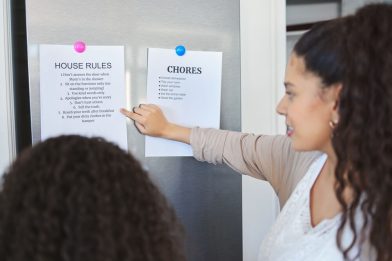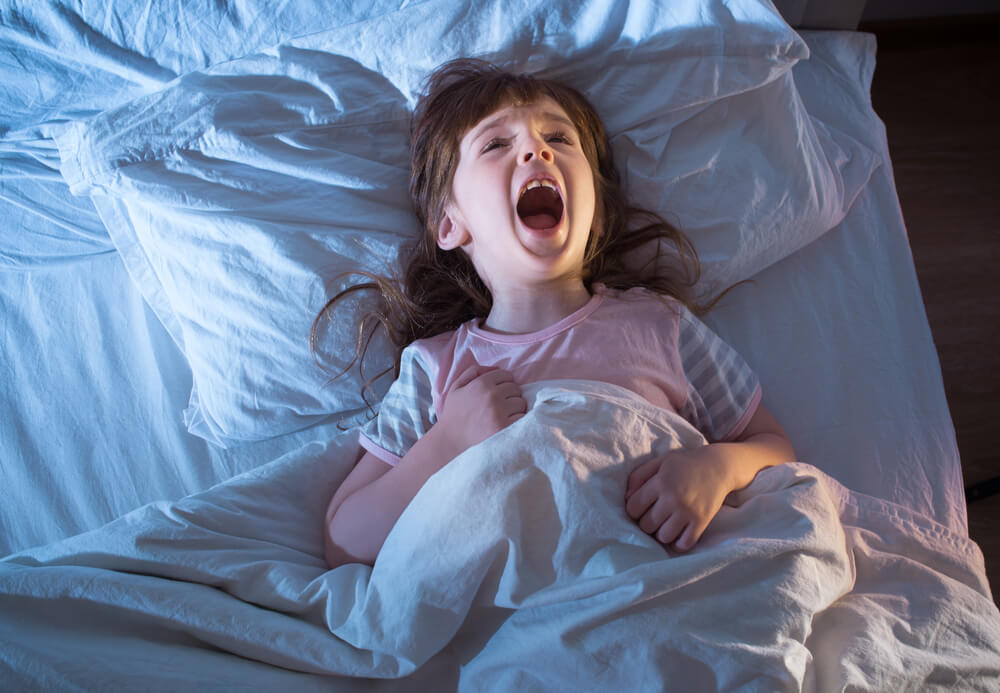Nudity at Home: Is it Okay to be Naked at Home Around Your Kids?

Whether it’s acceptable for parents to be naked at home in front of their children is often one of the most complex questions new parents face. Unfortunately, with so many differing opinions, deciding how to approach this topic can be challenging.
People want to know: is it okay to be naked at home around your kids? Should your kids see you naked? When is nudity appropriate? And what are the pros and cons of nudity at home?
The good news is you’ve come to the right place. This article has everything you need to know about nudity at home.
Ensure your child’s safety in all aspects of life with the Findmykids app, providing you with real-time location tracking and peace of mind. Download now and stay connected with your loved ones effortlessly.
Contents:
- Should Your Kids See You Naked?
- The Pros and Cons of Parental Nudity
- When is Nudity Appropriate?
- Does Parental Nudity Impact Kids Psychologically?
- How Do I Start Talking About the Body and Nudity?
- When Do I Discuss Boundaries and Discourage Inappropriate Nudity?
- What the Psychological Community Says
- Kids Know When It’s Best
- FAQs
Should Your Kids See You Naked?

Prostock-studio/Shutterstock.com
The short answer is—yes, but there are boundaries and insights that make the experience one of bonding and growth. Children need to understand certain core concepts of privacy and personal security. Viewing parental figures nude during moments like shared baby baths and learning to use the bathroom forms a foundation of understanding that shapes the way that they see the body and boundaries. It’s perfectly fine for your children to see you naked but only until modesty has naturally developed.
The Pros and Cons of Parental Nudity
Parental nudity has ups and downs, but overall, it is an asset to childhood development. Non-sexualized nudity within your home will never harm a kid, instead rather allowing them to develop their own boundaries and a healthy degree of privacy.
Pros
Nudity is a healthy part of child development. Bathing with a toddler or a full-frontal while changing clothes in front of a baby wouldn’t be a concern for anyone but fast-forward to their preteens and you’ve got a different situation. It’s all about how you handle it, with proper healthy nudity promoting the following benefits:
Strengthened self-image and healthy confidence
Comfort with one’s body and self-esteem are closely interwoven. When you help a child grow comfortable with their body and the bodies of others, you empower them with a clear self-image. Self-perception is often tainted by the views and judgments of society, false conclusions, and external opinions. Freedom means healthy confidence thanks to accepting who you are in truth—at its core, that starts with the body.
This can have a lot of long-term benefits for children, especially in today’s world, in which they may be exposed to certain beauty standards and media-friendly ideas of what bodies should look like.
As they get older, many children develop a fixed idea of how a body should be—with girls, it tends to be a focus on being slim or curvy, while boys are increasingly exposed to toned and muscular physiques.
By exposing your children early on to your own body shapes and features, they can grow up with a healthier and more grounded picture of how bodies can differ from person to person and may be less likely to become obsessed or fixated on having one particular body type.
Nudity is convenient
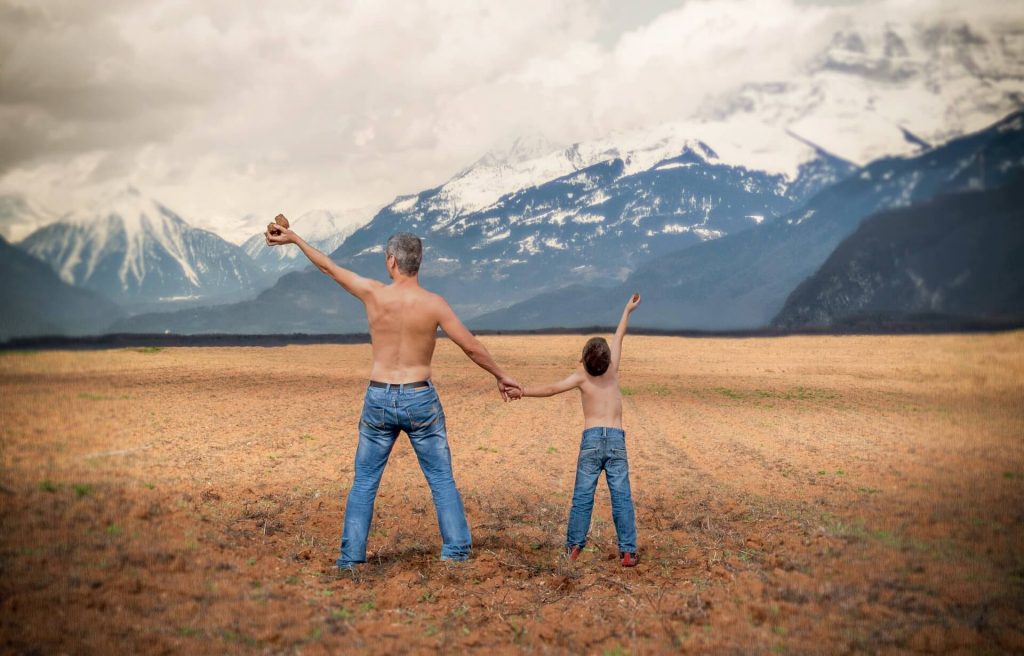
Prostock-studio/Shutterstock.com
The convenience of being naked in front of young children in situations where it isn’t easy to maintain boundaries just makes life easier for parents.
For example, with very young children, parents often struggle with taking the time to shower or go to the bathroom alone. In some situations, leaving a child to their own devices is inappropriate as they could hurt themselves. In other cases, listening to a screaming child and rushing through a shower isn’t beneficial for the parent or the child.
And what about young toddlers who don’t yet understand boundaries? Barging into the bathroom is a common issue, but it shouldn’t worry parents.
As babies grow and develop into toddlers and then children, they’ll begin to understand that everyone needs privacy. But, while they’re still young to understand these ideas or even to remember what they’re seeing, there’s little clear harm or risk in letting them see you naked while getting dressed or hopping in the shower.
Children learn the difference between nudity and sexuality
Nudity and sexuality are distinctly different things, but without a level of openness towards nudity and the body, the lines often blur. On the one hand, some parents value vagueness, but this is a problem in the making. Being naked around your kids encourages the sharing of objective information concerning sexuality, sexual situations, and sexual development and the right age at which it is needed.
It also opens discussions towards consent, and cases where nudity is not appropriate. In other words, you can use the act of being naked at home as a way to bring up important discussions about concepts like privacy, intimacy, body image, and so on. It can present valuable learning opportunities for little ones in their developing years.
Kids form a desexualized perception of the body
The human body should not be sexualized. Seeing parents naked comes with the advantage of learning what a naked adult body looks like without subjective interference. Seeing a woman’s body naked helps children understand that bodies are not something to be embarrassed about, while at the same time serving as an opportunity to educate. Discussions concerning sexuality will arise at the right age, and no healthy view of the body suppressed due to blurred lines and stigma.
Meanwhile, if children have no experience of seeing a naked body growing up, there’s a chance that they could develop unhealthy preconceptions about what it might look like, or even fears and phobias around seeing people naked or being seen naked, which could impact relationships in their older years.
Promotes acceptance and body positivity
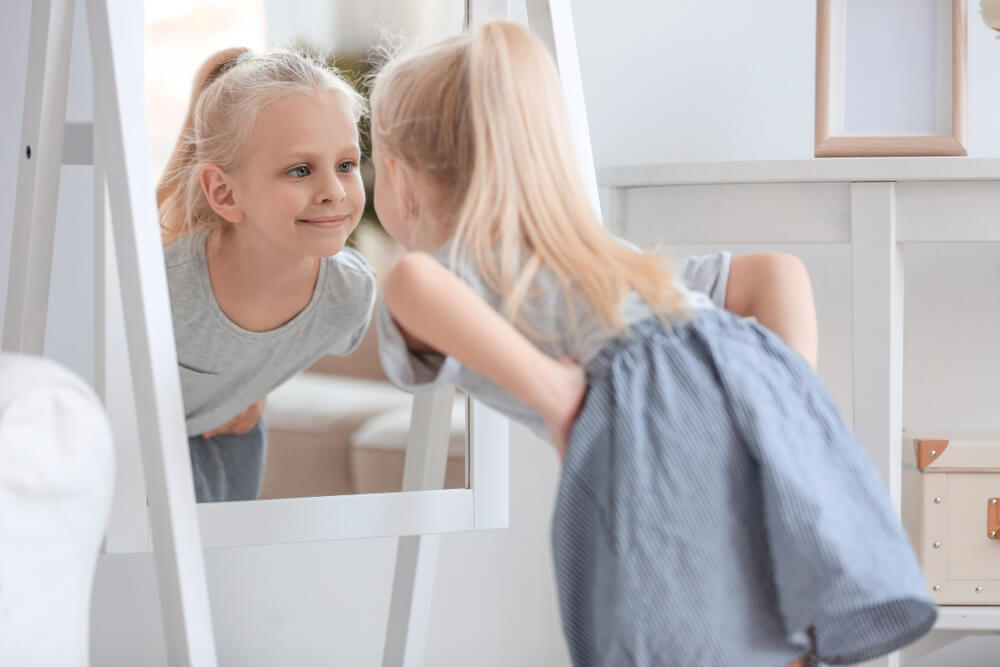
Africa Studio/Shutterstock.com
Magazines, commercials, movies, and even social media all contain images of what society perceives as beautiful and natural. For many parents, especially mothers, these beauty standards couldn’t be farther from the truth.
Many parents consider it important to teach their children what a normal body looks like so they don’t follow trends or think that people, especially women, should look a certain way.
Parents occasionally go naked in front of their children to teach them to accept their own bodies to achieve this goal. Learning that everyone is different and that difference is perfectly okay is a crucial lesson for young children.
As long as nudity is kept separate from sexuality, parents can promote body positivity and acceptance in their children.
Related: How to Promote Body Positivity to Your Child.
Allows the child to lead
When a child reaches adolescence, they will naturally develop feelings of self-consciousness around nudity. According to Psychology Today, this will occur regardless of how parents raise the child.
At a certain point, a child will not want to go skinny dipping with their family or into a steam room with a parent anymore, even though they did so in the past.
Respecting this decision is critical, as it’s an important part of a child’s development. Creating boundaries is a crucial life skill. Allowing them to take the lead and indicate when nudity is or isn’t okay is a great learning opportunity.
When parents allow a child to lead, it benefits the entire family, as long as parents can help to create safe spaces for their children by listening to their requests and not creating shame around nudity.
Cons

Prostock-studio/Shutterstock.com
Even though these cons have to be kept in consideration, they can each be seen as opportunities for child development & bonding. With the right attitude, any observation concerning nudity and the body can be transformed into potential for growth. Here are the only potential areas where an adjustment to your approach may be needed:
Prepare for a whole lot of strange questions
Being naked around your kids or embracing nudity to whichever degree you are comfortable with will lead to questions. See any and all inquiries as an opportunity to communicate and teach your children about their bodies, boundaries, and, at a later age, sexuality, and consent.
Prepared responses are a huge asset to any parent who has the slightest degree of discomfort discussing nudity.
But, if you get caught off-guard, you may find yourself in some awkward situations, having to explain what certain body parts are or why there are such differences between male and female forms.
Prepare for a possible lack of communication
Non-verbal communication carries all of the info that you need to shape the way that you handle nudity around your kids. Not all kids will openly discuss what they’re thinking and feeling, so be sure to pay attention to other cues. Any modesty indicates that they’re ready to start being more private about their bodies and the nudity of others.
It also gives you an idea of how to change the way that you communicate to better address their needs. So, even though this is a negative point about being naked at home, you can still derive something positive from it and use nakedness as a gauge of your child’s curiosity and development.
You might feel uncomfortable
While some parents are fine with nudity, others don’t feel comfortable and do not want to show their children a naked body. Both choices are perfectly normal!
Everyone grows up with different family boundaries and values. While one parent’s background might include openness to nudity, raised in a different house, the other parent might feel a more modest approach is best.
However, it’s crucial to understand that parents who don’t feel comfortable being naked in front of their children at any age should teach them the value of privacy without shame.
For example, parents should tell their children that there’s nothing wrong with the human body, all parts are perfectly normal, but it’s acceptable to keep them private and for others to respect that privacy.
Blurred boundaries
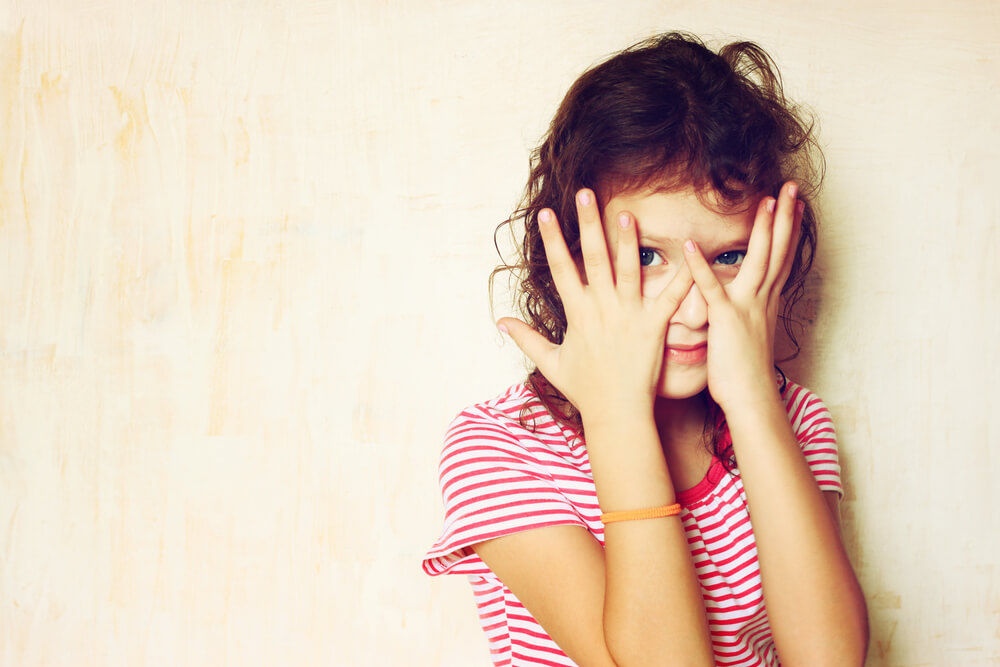
tomertu/Shutterstock.com
Nudity can get tricky, especially with children of the opposite sex. Many parents and adults feel that boundaries can blur, particularly regarding fathers and daughters.
Some parents feel they must teach their daughters that it’s unacceptable for a man to undress around them for whatever reason, including any male figure (to remove confusion and establish clear boundaries).
This isn’t to say that mothers and sons are exempt from these blurred boundaries either. When sons reach a certain age, the dynamic begins to change, and boundaries can also blur.
Parents need to pay attention to what is right for their family and what will benefit the boundaries they want to establish. Regardless, in a healthy family dynamic, both fathers and daughters and mothers and sons will eventually reach a place where it’s time to cover up.
Unconscious stimulation
At a certain age, a child will desire, or become stimulated by seeing their parents naked. The child won’t understand why they’re having that reaction, but parents need to look out for how the child acts.
Аccording to parenting expert and psychologist, Lawrence Butler, when the child becomes giggly, starts grabbing the parent, or gets rambunctious, these are clear signs that they’re becoming stimulated. These signs apply to children of both genders when they see either parent without clothes on.
While sometimes difficult to pick up on, parents need to acknowledge this behavior as a sign that their child is developing the need for more privacy. It shows that the time is right to stop being naked in front of your children and adopt a more modest approach to align with their state of development.
When is Nudity Appropriate?

Prostock-studio/Shutterstock.com
When to be naked and when not to be exposed, all depends on the household. It’s perfectly normal for most members of some families to sleep naked, or to be seen naked while walking to and from the bathroom. Most healthy relationships will be comfortable with nudity while not going out of the way to be seen naked. Children need to learn to be comfortable with their bodies, developing their own sense of privacy and their bodies.
In short, it’s about balance and logic. There’s no need to walk around the house naked all the time, or when there’s no logical sense in doing so, and too much exposure to nakedness may have adverse effects on a child’s behavior.
They might start to think it’s fine to be naked in front of friends or repeat the behavior at school. Strike the right balance between nakedness in typical moments—showers, getting dressed, etc.—without overdoing it.
Does Parental Nudity Impact Kids Psychologically?
When parents refuse to acknowledge that their children are sexual beings, this puts their children at risk of a confused development as well as more dire consequences like sexual abuse. Children become extremely curious without anyone to educate them, putting them in a vulnerable space due to not comprehending the danger of specific cues and situations.
This is why it’s crucially important to develop a framework of understanding for nudity, the body, and its distinction from sexuality. It’s also why, despite certain preconceptions about the idea, being naked at home in front of children in a moderate and limited way can be much more beneficial than covering up and exercising extreme modesty instead.
Does age play a role?
Age does play a role, but there is no definitive age at which nudity becomes uncomfortable. Parents need to pay attention to their children, looking for signs of modesty and a need for privacy. This being said, by the age of six children have developed a definite identity and should be modest about their body and private matters—this doesn’t mean uncomfortable regarding themselves but rather heedful of the boundaries which they grasp and set.
Is it Okay to Compare Bodies?
It is completely natural to compare and discuss the human body. Your child needs to develop a sense of comfort with themselves. Younger children will begin comparing their bodies to you and your partner. Supply factual answers to any questions, while using the opportunity to teach them when nudity is acceptable. As soon as sexual questioning or modesty arises, it’s generally time to start covering up.
How Do I Start Talking About the Body and Nudity?
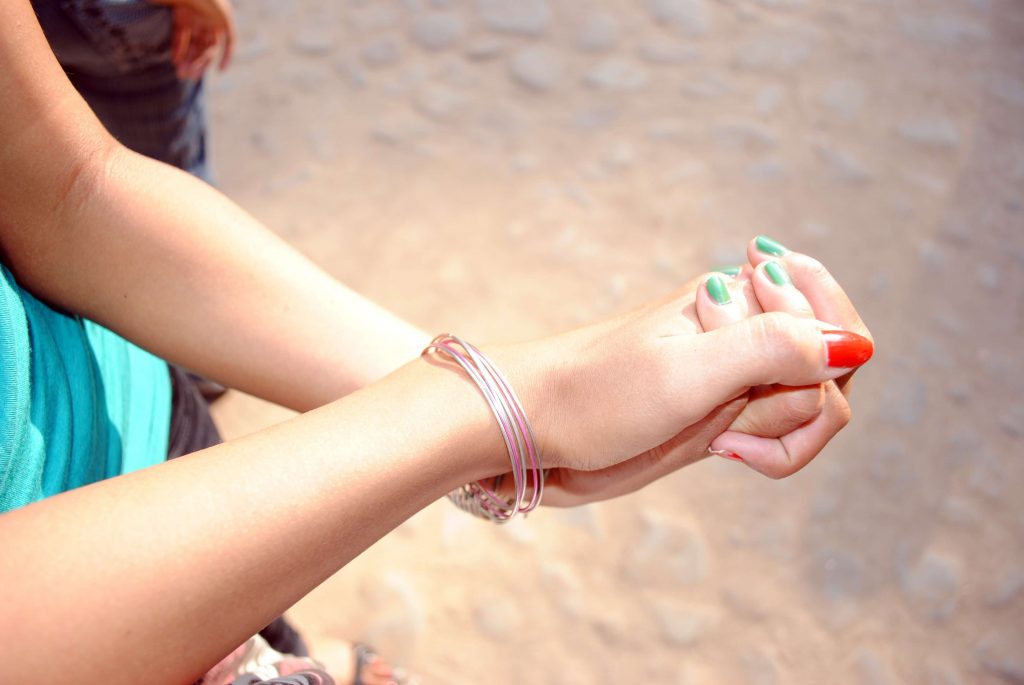
Prostock-studio/Shutterstock.com
Household boundaries aren’t used by every family but can serve as a fantastic way to talk about nudity. Striking a balance between openness and preparing your child for the world is essential. If you let your child see you naked, be prepared for the questions that you know will arise, perhaps placing them within the context of family or household boundaries. Some families will be okay with nudity in areas like the bathroom or when in nature, while others are mindful in more places. However you handle it, never communicate shame.
Enhance your child’s safety and well-being with the Findmykids app, offering advanced GPS tracking and smart features for peace of mind. Download now and empower yourself to create a secure and nurturing environment for your family!
When Do I Discuss Boundaries and Discourage Inappropriate Nudity?
One needs to talk to kids about when it’s acceptable to see someone naked. They need to learn that touching is not appropriate, and you need to help them not only blindly follow but understand the many factors connected to nudity. If your little one grabs at a body part, discourage while leaving explain to the age at which they’ll grasp what you’re saying. Set situational rules as issues arise, using their cues, questions, and reactions to determine what needs to be handled.
Does the Sex of the Child Matter?
While every part of nudity in the household is relative, the sex of the child makes a difference in most cases. Boys generally start feeling uncomfortable regarding nudity around their mothers sooner than girls. Similarly, girls typically grow uncomfortable with nudity around their dads earlier than sons. When questions and comments concerning different physical appearances arise, this is the best time to start informing them about their bodies.
At What Age Should Parents Stop Undressing In Front Of a Child?
Children begin developing a need for privacy from around the age of four or five. This indicates that they’ll experience equal discomfort while seeing their parents naked. Certain individuals will begin developing a conscious identity early, others later. The key is to pay attention to what your child sees as comfortable and uncomfortable, using their reaction as a cue to when to stop undressing. Not all kids are the same. Some will continue to be okay with nudity to a late-preteen stage while others are done at four.
Signs to Stop Undressing In Front Of Your Kids
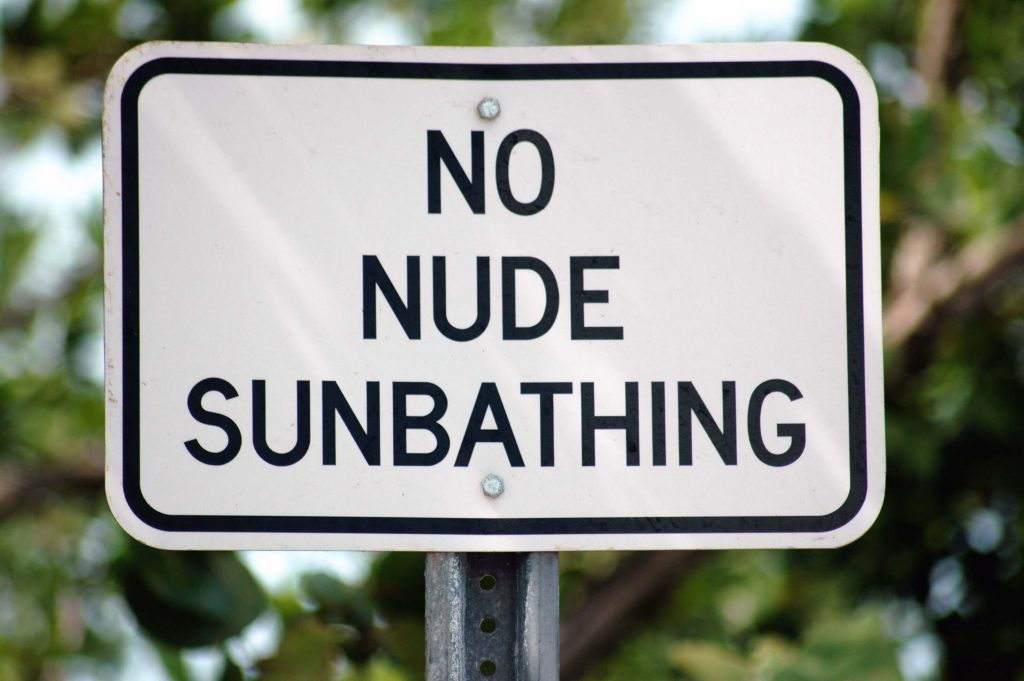
Prostock-studio/Shutterstock.com
As explained, every child’s comfort level differs, leading to a different age at which to stop showing your body, or their body. Here are a few signs that modesty is arising:
- Constant questions concerning private parts
- Laughter or kidding about body parts
- Attempting to touch private parts
- Averting their eyes when seen naked or seeing you naked
- Staring at private parts
- Asking for privacy
- Telling you to cover up nudity
As soon as your kids start viewing genitals as explicitly sexual organs, it’s the right time to refrain from being naked around your kids.
Inform your children about cultural and societal differences
Shame must never be associated with any expression of personal identity. This includes the way that they see the nudity of others. Many areas of Europe are especially open concerning nudity and being naked in public. For example, in Germany, certain public pools permit children to swim naked until the age of six. Teach kids what nudism and a nudist are (if you aren’t already that free with your own nudity) and help them respect others without casting judgment.
What the Psychological Community Says

SB Arts Media/Shutterstock.com
Over time, the psychological community has extensively researched the impacts of nudity at home on children.
In 1986, Smith and Sparks’ The Naked Child: Growing Up Without Shame concluded that “the viewing of the unclothed body, far from being destructive to the psyche, seems to be either benign or to actually provide positive benefits to the individuals involved.”
In Betty N. Gordon and Carolyn S. Schroeder’s, Sexuality: A Developmental Approach to Problems, they determined that “there is nothing inherently wrong with bathing with children or otherwise appearing naked in front of them.” Their research concludes that by the age of 5-6, children start to develop a sense of modesty. They recommend parents respond to this by respecting their child’s wishes.
Paul Okami reviewed this study in 1995. He also concluded that no reliable evidence connects any adverse effects of parental nudity on children. In addition, his 18-year study concluded that parental nudity provides a slight benefit to children, particularly in boys.
Of course, it’s crucial to note that parents need to watch out for problematic play. For example, if children begin to exhibit sexual play, psychologist Barbara Bonner recommended (in 1999) that parents should prohibit nudity in the home.
More recently, psychiatrist Lisa Lis recommended that family life must respect that children will request modesty as they grow older. Still, nudity is a natural part of family life when children are very young.
If you’re seeking a more cultural perspective, Bonny Rough, an American writer, compares the differences in raising her children in America and Amsterdam, Netherlands.
While living in Amsterdam, Rough learned that Dutch families typically engage in same-gendered family nudity. For example, a husband would be naked in front of his daughter. However, in America, this situation is significantly less likely to occur or be accepted.
Rough also pointed out that American families avoid discussing sex or the body with children, and there’s a big avoidance in teaching children the proper terms for body parts. As a result, she notes that children can’t properly express when or if someone inappropriately touches them.
In the Netherlands, sexual education starts at the age of 4. As a result, Rough noticed a significant decrease in inappropriate behaviors as children and seemed to be more comfortable in their own skin.
If one looks at other recent psychological studies, no negative impact on adolescents who saw their parents naked between the ages of three and six was determined.
It’s clear that the evidence gathered by the psychological community concludes that nudity at home doesn’t negatively impact young children. It can provide benefits later on in life. However, it’s critical also to understand that every family is different.
How to Handle Nudity at Home?
Every home should ideally embrace nudity on some level in order to give their child or children the best sexual development and sense of personal identity possible. Issues concerning the body or self-perception are far less likely to arise. However, embracing nudity is different for every family. It all depends on what you’re comfortable with, and how your personal belief system and family handle nudity.
Kids Know When It’s Best

Prostock-studio/Shutterstock.com
Most of the time, your kids will let you know when they’re not okay with you being naked in front of them. Be prepared with a plan in mind covering how you’ll handle sensitive subjects to encourage an open relationship. How were you raised? Are you parenting your kids with the same prevailing views on the body and nudity? Let us know in the comments below and be sure to share this with any other budding parents who need a little insight into parental nudity.
FAQs
My teenage daughter (14) insists on swimming nude. Is it normal for her not to care who sees her?
It’s normal for a teenage girl to feel confident in her body and enjoy swimming nude. However, she must understand that swimming nude any time or anywhere she wants is impossible.
The truth is that a nude person cannot swim anywhere they please. There are rules and laws in place. Many of these rules explicitly help to protect minors from those who seek to exploit them.
Children and pre-teens need to understand the unfortunate societal dangers of nudity. While it’s important to teach children about sexual health, and body positivity, no one can go about their daily life sans clothing without being arrested or ticketed.
Should a 12-Year-Old Boy Be Naked At Home?
The answer to this question really depends on the circumstances within the family. Some parents believe that nudity is fine at home, while others think they should wear clothing and keep more privacy between family members.
according to Today’s Parent, most 6-year-olds start to understand the concept of privacy and might start asking for more modesty or shying away from those who bare their skin for all the world to see. Children begin to increase these boundaries as they naturally reach puberty.
Chances are, a 12-year-old boy will not feel comfortable being naked at home and will begin to request more privacy and boundaries. If not, it’s something the family might want to communicate (without shame) depending on everyone’s comfort level.
Проверьте электронный ящик














